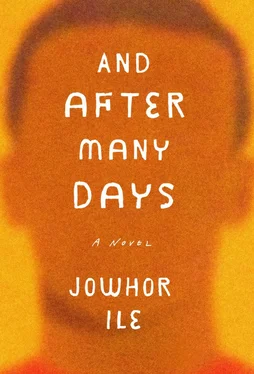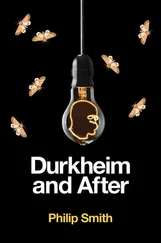Auntie Julie cut her off. “What is the difference?” she asked, but didn’t wait to get an answer. “You children have no fear at all. I see the easy hand with which your parents are raising you.”
“Bendic hasn’t complained about it,” Paul began slowly, “and that’s what we have always called him.”
“Paul!” Auntie Julie shot back. “Don’t you have any sense? You are the eldest, yet you cannot set a good example. I don’t know what your mother teaches you. A man like your father, look at his age, look at you. Can’t you see that he is old enough to be your grandfather?” She paused and pouted. “Okay, that aside, a big man like your father, don’t you see how other people greet him? Yet you open your mouth and call him Bendic, Bendic, Bendic. Don’t you hear what other children call their fathers?”
At this point Ajie was fed up and hoped Bibi would say something out of turn, blurt out words in exasperation, but she didn’t.
“If you want to be respectful children,” Auntie Julie continued, “you must call him Daddy, Papa, Pa. Choose one, but this Bendic rubbish must stop. Today!”
She looked at Paul to see if the matter could be left there, if he could be trusted this time to enforce the new rule. She stood over them and their little eyes flashed back at her: three tadpoles and one big fish. Auntie Julie called Bendic “sir,” Ismaila the gateman and Marcus the driver both called Bendic “Oga,” as they should, because he was their boss. Ma called him Ben, or Benedict sometimes. But the children called him Bendic. Ma said one day when Paul was about two, their father came in from work, and Paul jumped to his feet and called him “Ben-dic.” Bendic and Ma were so happy that their formerly taciturn son had eventually found his tongue, they cooed the word back at him, encouraging him to say it again and again, and the name stuck. Bibi and Ajie took it up when they came along.
For some reason, Ajie’s resentment of Auntie Julie sharpened that morning as he walked through the kitchen to the back of the house, where Bibi was sitting on the septic tank.
What sort of person, Ajie thought as he turned the doorknob that led to the backyard, would think giving their father an endearing name was equal to taking away the respect that was due him? What sort of person would force them to call their father Daddy, like all those silly children at school with their stupid plastic cartoon lunch boxes? It riled him even to think that someone like Auntie Julie could survive, was allowed to survive, in a world where his own brother could go missing for days.
That afternoon, when Auntie Julie had cornered them in the kitchen, they had all nodded, but her request was denied, firmly, silently. There was no Daddy, Pa, or Papa in their mouths. She mistook their silence for acquiescence; she rubbed their heads and pulled their little forms close in a kind of embrace, smothering their faces against her wrapper, her squishing blouse. The heavily sequined wrapper tied on her waist felt lukewarm on Ajie’s cheeks. The smell of camphor (common with clothes left for too long at the bottom of a trunk) made Ajie feel malarial, sick enough to turn out his bowels in a feverish bout. He held his breath, counting and waiting for the embrace to end. He was on four and a half when she finally let go and he stood on his own feet. He looked down and saw her feet: the open front of her high-heeled sandals, the chipped red polish on her big toenails.
When Ajie opened the back door, he could hear Auntie Julie talking to Ismaila as she left. Bibi was sitting on the concrete slab of the soakway, with her back to the house, looking over at the neighbors’ compound. The mango tree by the fence was thickly green with leaves but was without fruits.
“Bibi,” he said as he came down the steps, “Bibi.”
Bibi did not respond.
“You mean he didn’t say anything at all before he left?” she asked without turning her back. “He must have said something to you.”
Ajie stopped dead in his tracks, and guilt rose like tidewater up to his chest and made breathing very difficult. If anyone could have spared Paul from going missing, it should have been him.
Paul was four years old when Ajie was born. He often told Ajie that he remembered the day, a blazing hot Friday afternoon right after school. He also said Ajie was as black as charcoal at birth, and had a pair of bright red ears. Ajie had his doubts about this story but didn’t contradict his brother. Instead, he would ask if Paul could remember the day Bibi was born. Was Paul not already two years old then? Were her ears also red? How tiny was her nose? If Bibi was within earshot, Ajie might rephrase the last question or withdraw it (Bibi hated her nose, and Ajie felt that with the way the thing was shaped, no one could blame her). If he was feeling ready for trouble, he would go ahead and ask whatever he wanted.
Bibi was not one to let things lie. She didn’t rush into her battles, either; she courted them with a firm, steady hand. She would first allow her temper to heat up to the degree necessary. “I am warning you now,” she would say, wagging a finger at Ajie, “stop that nonsense.” She would fling him some bait, initiating a countdown. “One…” she would say in a level voice, then fold her arms across her chest and look away.
Once the count had begun, Ajie would find it impossible to resist.
“That is the problem you have, Ajie,” Paul would say as a way of cautioning him, “you don’t listen.”
Ajie would find himself grinning. “Minus joke, Paul,” he would continue. “Okay, let’s just say her nose was not tiny, then…”
“Two?” Bibi would curve it like a question.
“…did her eyes close Chinese-style every time she tried to laugh?”
“Three!”
Bibi would unleash her rage like a whirlwind. Ajie would feel her transform in a flash, twirling and spinning toward him. He would yell, “Cool down! What did I—”
A slap. A knock on the head. Before he could recover from the shock of her assault, she would hold his lips together in a tight pinch, and Ajie would slap at her skinny arms. She would hold firm. A small ridge would form between her eyebrows as she pulled and twisted his lips. “You. Have. No. Respect! You. Have. No. Respect!” Ajie would kick at her and she would let go. Some days he gave slap for slap. If she grabbed him by the collar, he grabbed back, and the veins on their necks would stand out like tiny ropes. Paul would roll up an old magazine to hit them with. “Let go. Let go.” They would dance about until Bibi did her swing — that was her winning move — putting all her weight on one leg, then hurling Ajie, with all her might, across the room. He would fly off, and with his own solid grip on her, she would follow and land on top of him, where it would be left to her to hit and hit. Then Paul would hold her hands and shout, “Bibi!” dragging her off. Panting heavily, righting her dress, she would snap her fingers at Ajie. “Try me next time.”
“There is nothing you can do!” Ajie would yell back, his ears and cheeks stinging hot with pain.
“Enough is enough!” Paul”s voice would sound grave enough to silence them, at least for a while. They would wait for Bendic to return from work before reporting the case, because Ma had a hurried way of dealing with their disputes that wasn’t worth the trouble. “How can you make fun of your older sister like that?” Ma would cut in. “My friend, let me not hear this next time.” And then, turning to Bibi, “Don’t you have any shame? You shouldn’t be fighting your younger brother. The two of you, apologize.” Bibi would wait for Ajie to go first. Ajie would wait, too, and then Ma would look at the two of them. “I’m not hearing anything, or have I gone deaf? Ajie, you are younger, go first.”
Читать дальше












